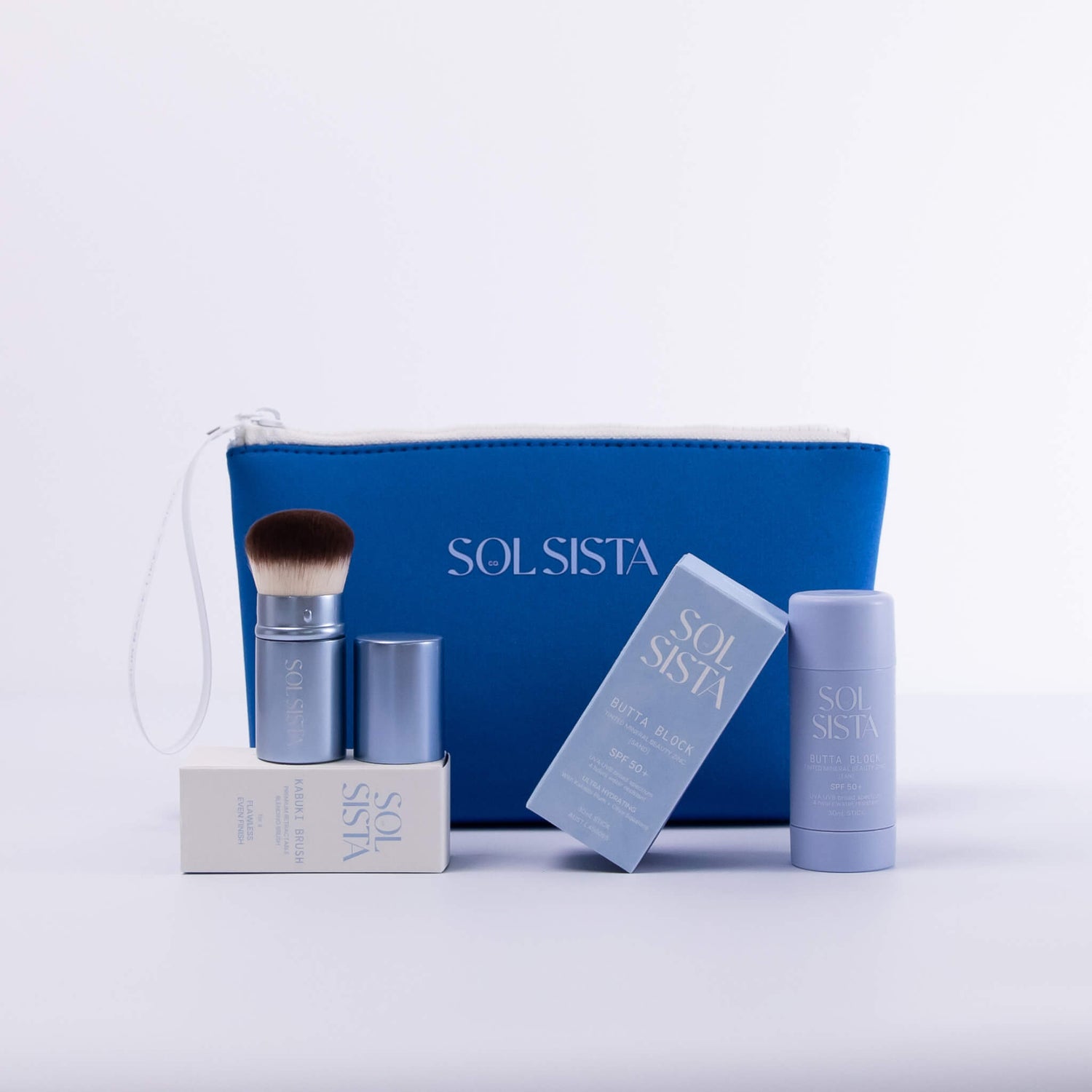Chemical vs. Mineral Sunscreen: Why We’re Team Mineral
Britt JamesShare
Sunscreen is non-negotiable, but how it works matters. Both chemical and mineral sunscreens protect your skin from UV rays, but they do it in very different ways—and not all sunscreens are created equal.
The Chemical Sunscreen Dilemma
Chemical sunscreens absorb UV rays and convert them to heat. While effective, they often contain ingredients like oxybenzone, linked to hormone disruption, and can irritate sensitive skin. They also break down faster in sunlight, meaning you’ll need to reapply more often.
Why We’re All About Minerals
Mineral sunscreens, like those containing zinc oxide, act as a physical shield, reflecting harmful UV rays away from your skin. They’re non-toxic, gentle, and ideal for sensitive skin, providing effective sun protection without the risks associated with some chemical ingredients. Plus, they’re reef-safe, so they’re kind to the ocean too.
At Sol Sista Co., we’ve made the choice clear: BUTTA BLOCK™️ Tinted Mineral Beauty Zinc SPF50+ only uses 100% mineral filters for sun protection. It’s packed with nourishing ingredients, offers light coverage, and keeps your skin and the environment safe.
When it comes to sunscreen, mineral isn’t just better—it’s smarter..












